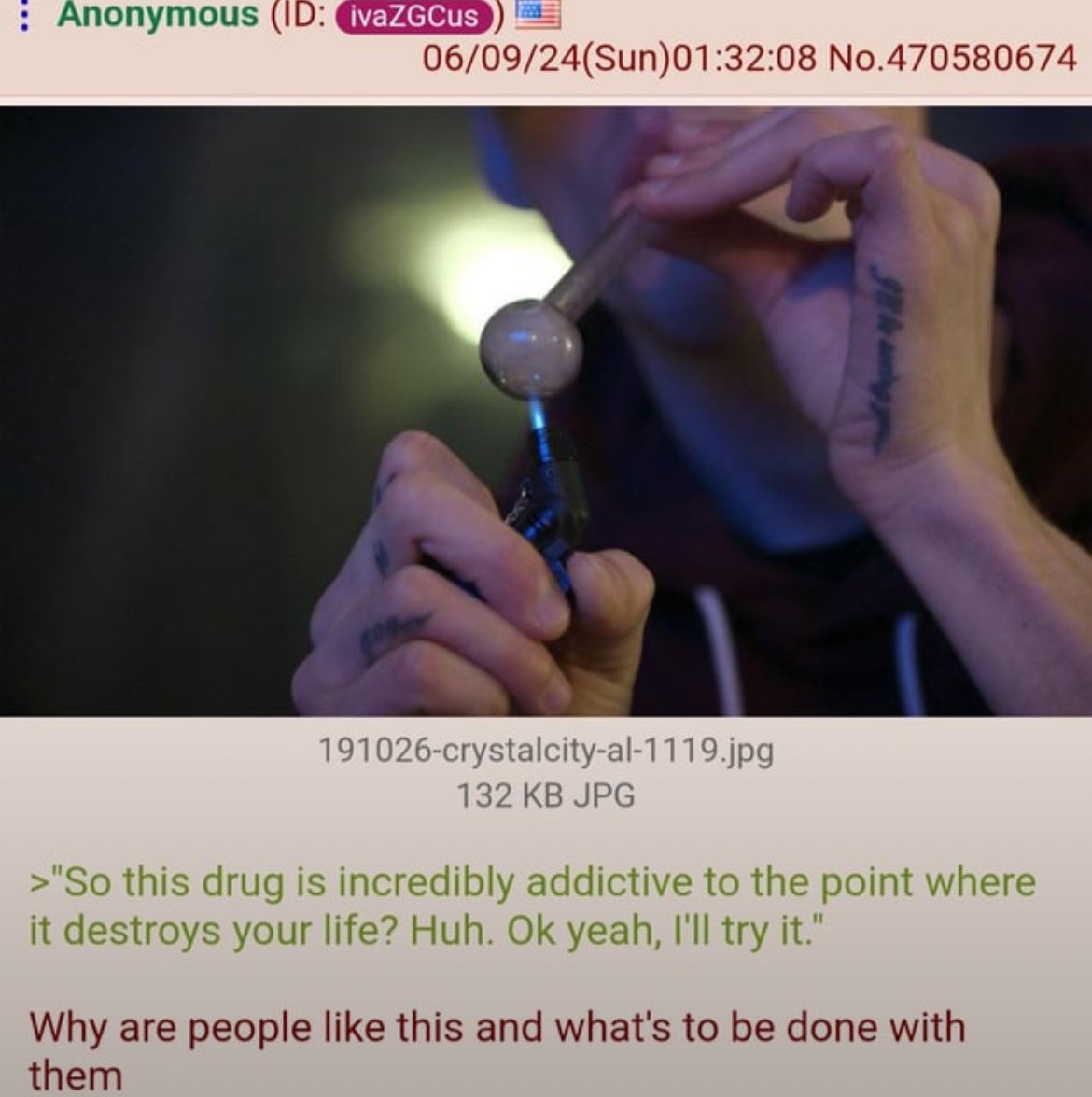this post was submitted on 08 Jul 2024
589 points (94.7% liked)
Greentext
4452 readers
1493 users here now
This is a place to share greentexts and witness the confounding life of Anon. If you're new to the Greentext community, think of it as a sort of zoo with Anon as the main attraction.
Be warned:
- Anon is often crazy.
- Anon is often depressed.
- Anon frequently shares thoughts that are immature, offensive, or incomprehensible.
If you find yourself getting angry (or god forbid, agreeing) with something Anon has said, you might be doing it wrong.
founded 1 year ago
MODERATORS
you are viewing a single comment's thread
view the rest of the comments
view the rest of the comments

Sounds like more of a criminal justice issue than anything. It's important enough to work on it instead of admitting defeat.
No one is admitting defeat, they are just telling you to stop focusing in on the symptoms and start focusing in the problem. You want to address drug misuse problems in western society? Start by addressing the problems that actually highly correlated with it. Help for unhoused persons. Better mental health systems. Those two things alone could curb a huge majority of drug misuse. If you take care of the symptoms then the problem will be mostly solved without need for any criminalization, be it criminalizing supply or demand. For the rest of people I think more funding of rehabilitation and drug education (and no, just telling people to abstain from drugs is not good education, just like abstinence is not good sex education).
With that I can agree, while still holding to the position that drug supply should be criminalized.
This simply shouldn't be considered as a solution in and of itself.
Absolutely a criminal justice issue. Its an economic issue ("unemployable" people gravitate towards black market labor roles). Its a health care issue (street drugs often stand in for prescription medication, particularly pain relievers and psyche meds). Its a color-line issue (drug use becomes an ethnic stereotype which is used as an excuse to segregate).
All these tail effects make explicit prohibition more of a problem than a solution. Tackling the associated problems - health care needs, jobs program, desegregation - goes a long way towards reducing the incentives to consume (and therefore distribute) harmful substances.